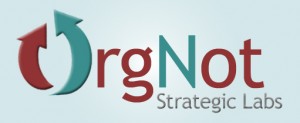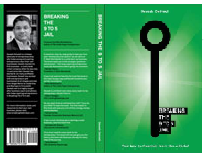Employee Turned Entrepreneur – Obi Orgnot
Posted Under: Entrepreneur, Entrepreneurship, Our Heroes
 Obi Orgnot is the next entrepreneur in “Our Heroes” series. Today we will learn how he went from being his own boss in an “unsafe” way to being his own boss in the best way he could.
Obi Orgnot is the next entrepreneur in “Our Heroes” series. Today we will learn how he went from being his own boss in an “unsafe” way to being his own boss in the best way he could.
DD: Who are you and what kind of corporate job were you at?
OO: My name is Obi Orgnot, and I was a mid-level executive for a direct sales company based in London. I managed a team of around 45 people, and we often ran campaigns for large companies such as BSkyB. We had previously worked with large telecoms and energy providers performing residential campaigns, and we were known to be among the best in this type of customer acquisition.
DD: What made you leave the job? When did you realize that you wanted to be an entrepreneur & why?
OO: I left the job because what I had originally assessed as a “safe” way to be my own boss (I had full control over my team) turned out not to be so safe. When we started working with our new client, there were a series of training issues, and one of my colleagues who managed a team larger than my own and had been at the company longer than me took the brunt of the blame and was unceremoniously dismissed.
The event had a profound effect on me because I knew how dedicated he was to this company – he had really sacrificed a lot to ensure its success with long hours and putting parts of his personal life on hold. The most poignant part of the meeting where he was fired was seeing him in tears as he said his goodbyes.
I have always wanted to be an entrepreneur ever since I came across the concept. My parents both worked, and in school you are given the idea that the “normal” and “safe” route is to get a job and save for retirement. But for me, it was when I started reading about people like Richard Branson; I was taken with the idea that he did whatever he wanted and out-earned most people without having to wear a suit. More than anything, I wanted a true sense of freedom not to have my life dictated by any external force whether that’s a boss or a paycheck.
DD: What did you do to break the corporate jail? How did you prepare for the employee to entrepreneur transition?
OO: The first thing I started doing was consuming business literature voraciously and began to take steps to manage my time better. Although I had what some would say is a good lifestyle, I barely had time to enjoy it. Because I knew I wasn’t in it for the long-haul, I started diverting my extra effort from my current employer to my own education.
I’m not risk averse per se, but I like to be careful about the moves I make, so I made sure that I had a well crafted exit strategy that would take me seamlessly from my current job to OrgNot. At one point, I was doing the two simultaneously, and I managed to find a balance so that, as I stepped down from my day job, I was able to focus more intently on my business.
DD: What is one resource (person, coach, book, organization anything) that helped the most/best?
OO: Without a doubt it would have to be “E-myth Revisited.” When you first start out, you have so many concepts fluttering around your mind and you’re convinced that each one is golden. This book gave me a clear map for balancing my various business goals; taught me the value of having efficient systems and company-wide procedures; and how to still live while building something as complex as a company. The biggest hurdle I had starting out was, I wanted to do everything, and if I wasn’t spending 20 hours a day on the business, I didn’t think I deserved success. This gave me true balance and allowed me the freedom that motivated me in the first place.
DD: What do you know now that you wish if only you knew when you made the transition?
OO: I wish that, as I was making the transition, I had developed a more thoroughly tested recruitment system. I thought a good employee was a good employee, so I used a lot of the guidelines from my previous employer for recruiting people for my team. However, I found that I wasn’t able to attract the right kind of people without having the prestige of being a huge firm. I needed a procedure that would bring in people who wanted to create something new and special, rather than people who wanted to work in the apparent safety of a large corporation.
DD: What are your suggestions for aspiring entrepreneurs? (My fav!!)
OO: What I see the most among the clients I work with is that they often don’t have set procedures and guidelines in place – there are many suggestions I could give for new starters but for now I’ll talk about this.
Most aspiring entrepreneurs want more freedom, and they see business as an attractive option as it gives you a sense of control. However, all too often this translates into a business model where the owner is the bottleneck of production. This means that the business couldn’t run if they decided to go skiing for a couple weeks – that is a real problem as it causes stress and makes your business fragile.
Before starting a business, you should think about how you are going to replace yourself within that company. When you start, you do almost everything, but as time goes on you take on employees and specialists to cover these tasks. Before you begin employing these people, you need to systemize what you do to the lowest common denominator so that, if the employee is average, they’ll do a good job and if they’re exceptional they’ll be excellent – but more importantly, if they are terrible, at least the basics get done until you can replace them.
Your people will always be important to your business, but if you want stability, then systems will be king. Always remember employees (even very loyal ones) can come, go or get sick, but your systems will always be there ensuring a constant minimum level of competency throughout your company. If you do this properly, you will create a culture in your business rather than a set of rules – it means that when new employees are hired, everyone is in harmony and they know, more naturally, what’s expected of them. Having a culture also makes it easier to give managers autonomy as they will naturally make decisions that fit into the culture you have fostered.
For example if Mars Ltd. contacted anybody at Whole Foods and asked for a distribution deal, everyone in the company would have the same response: no. It’s not part of their culture – “natural & organic” – so the decision is easy to make. There is no need to waste time on discussions, meetings or anything else. This is something every aspiring entrepreneur should be seriously thinking about.
Here are some ways to achieve this:
[list style=”star”]- Develop a “company narrative” – This is the story of your company, what makes you special and what you and your clients expect from your employees.
- Create detailed employee manuals that every employee must know inside out. This should document all your procedures and tie in with your company narrative.
- Regularly test employees on company procedure. There should be a culture that it is unacceptable to do certain things which are not in keeping with the company narrative (e.g. Google’s “don’t be evil” narrative or Whole Foods “nothing artificial” narrative).
Of course, there is more to business than creating a culture, but with all the decisions that need to be made on a daily basis, I think it makes sense to have an ethos that would have your executives and your secretaries arrive at the same conclusion instantly.
DD: How are you doing and how do you feel now?
OO: Right now things have never been better. Our agile business model meant that we didn’t really take a lot of punishment during the recession. In fact, when things are going wrong, we find that companies are seeking us out to try and stimulate growth. We are looking very optimistically to the future and hoping to expand business into more non-English speaking markets as well as developing new technologies to help our clients better diagnose issues they may be having with their businesses. So, it’s an exciting time in terms of innovation. It never ceases to amaze me what they can make software do these days, and I’m looking forward to the next ten years.
Wow! Obi Orgnot has some greatly detailed advice for all you entrepreneurs out there! The point Obi made about thinking how you will replace yourself in your business is very important – you don’t want to buy yourself a job with the business you start; you want to build a business in a way that you can scale it and systemize it so it can run even without you, if needed. Along with tips to create a narrative for your business, Obi also suggests working to manage your time wisely. That way, you can go on a vacation every once in a while (say FREEDOM!) instead of being so directly tied with your business that it completely consumes your life.
Have you started working on your way out of the cubicle jail? If you need help, email us!





